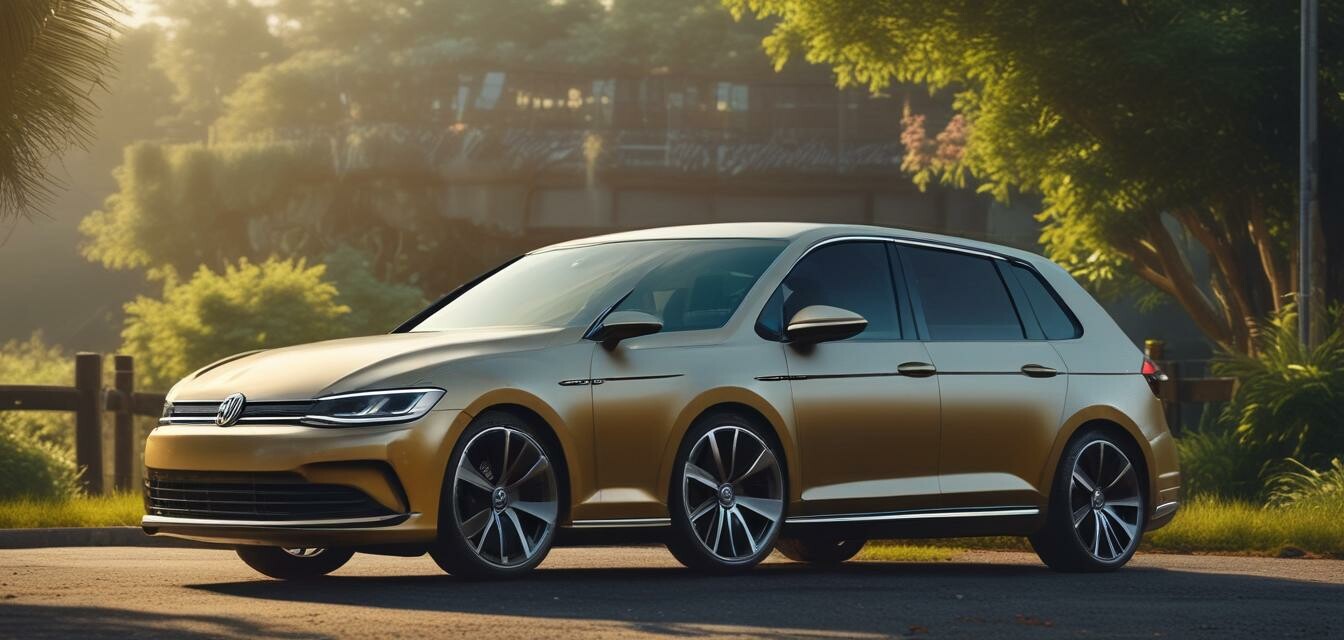
VW Tuning and the Shift Towards Sustainability
- The VW tuning community is increasingly focused on sustainability.
- Eco-friendly parts and renewable materials are gaining popularity in modifications.
- These trends lead to improved vehicle performance while reducing environmental impact.
- Staying updated with the latest sustainable practices can enhance your tuning experience.
- Learn more about eco-conscious tuning options in our buying guides.
In recent years, the automotive industry has seen a significant shift towards sustainability, and the Volkswagen (VW) tuning community is no exception. Car enthusiasts are increasingly prioritizing eco-friendly modifications and practices to enhance their vehicles without compromising environmental responsibility. In this article, we’ll explore how VW tuners are integrating sustainability into their passion for performance.
The Changing Landscape of VW Tuning
Traditionally, the tuning community has been focused on maximizing performance, often leading to increased emissions and fuel consumption. However, a growing awareness of environmental issues is prompting many enthusiasts to reconsider their approach. Here are some of the key influences driving this change:
- Environmental Awareness: With rising concerns about climate change, there’s a collective effort to reduce carbon footprints.
- Regulatory Changes: Many regions now impose stricter emissions regulations, pushing tuners to find compliant solutions.
- Consumer Preferences: A shift in consumer interests towards sustainability is prompting manufacturers to develop eco-friendly products.
Incorporating Eco-Friendly Parts
Echoing broader industry trends, many VW tuners are now seeking parts that are not only high-performing but also sustainable. Here are some examples:
| Eco-Friendly Part Type | Description | Benefits |
|---|---|---|
| Sustainable Materials | Parts made from recycled plastics or bio-based materials. | Reduces waste and lowers environmental impact. |
| Efficient Exhaust Systems | Performance exhaust manifold that meets eco-standards. | Enhances performance while minimizing emissions. |
| Lightweight Components | Composite materials that decrease vehicle weight. | Improves fuel efficiency and reduces energy consumption. |
Benefits of Eco-Friendly Modifications
Choosing eco-friendly parts can create a win-win situation for both performance and sustainability. Some of the key benefits include:
- Improved engine efficiency and power output.
- Reduced fuel costs through better mileage.
- Contribution to a cleaner environment and a positive community image.
Renewable Materials in Tuning
Beyond specific parts, the use of renewable materials is gaining traction in the VW tuning scene. Car enthusiasts are increasingly looking for:
- Bio-based Plastics: Created from natural sources to reduce reliance on fossil fuels.
- Natural Fibers: Interior enhancements using materials like hemp or bamboo for upholstery.
- Eco-friendly Paints: Low-VOC options that maintain vibrant colors without harmful emissions.
The Role of Technology in Sustainable Tuning
Advancements in technology are making sustainable tuning more accessible. Innovations such as 3D printing allow for the production of custom parts using eco-friendly materials, and software tools help tuners track their car’s performance for continuous improvements. While enhancing performance, these technologies also contribute to reduced waste and environmental impact.
The Community’s Response
Clubs and online communities centered on VW tuning are actively promoting sustainable practices. Many events now feature workshops on eco-friendly modifications, making it easier for enthusiasts to learn and engage. Community-driven initiatives include:
- Organizing eco-conscious tuning events.
- Sharing knowledge through buying guides on sustainable parts.
- Encouraging members to share their green upgrades via social media.
Industry Trends to Watch
As the landscape of VW tuning evolves, there are a few trends worth keeping an eye on:
- Increased Availability: More manufacturers are producing eco-friendly components, making them easier to obtain.
- Collaborations: Partnerships between tuning shops and sustainability-focused brands.
- Aggressive Marketing: More tuners promote their sustainability goals, appealing to eco-conscious consumers.
Conclusion
The shift towards sustainability in the VW tuning community reflects a larger trend in the automotive industry. By embracing eco-friendly practices, tuners are not only improving their vehicles but also contributing to a healthier planet. As the community continues to innovate, there will undoubtedly be exciting developments. Staying informed through resources such as our news and trends section will help you remain at the forefront of sustainable practices.
Pros
- Improved performance with eco-friendly parts.
- Reduction in long-term costs due to better fuel efficiency.
- Positive impact on the environment and community reputation.
Cons
- Higher upfront costs for sustainable parts.
- Limited availability of some eco-friendly products.
- Potential trade-offs in certain performance aspects.
As we look to the future, the importance of sustainability in VW tuning will only continue to grow. Whether you’re just beginning your tuning journey or are a seasoned pro, consider the benefits of integrating these principles into your process. Dive deeper into the world of VW tuning and explore various categories such as performance parts and exterior upgrades to enhance your vehicle's performance responsibly.
